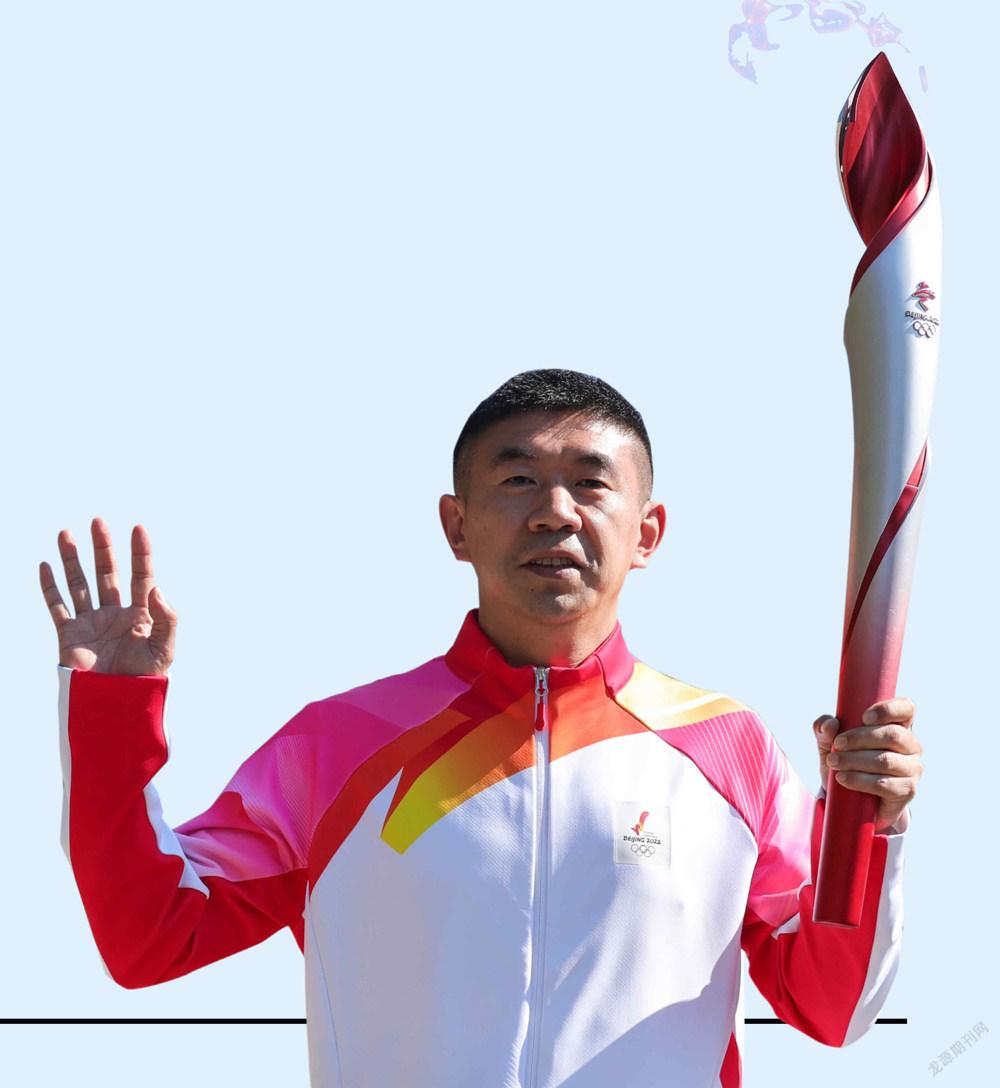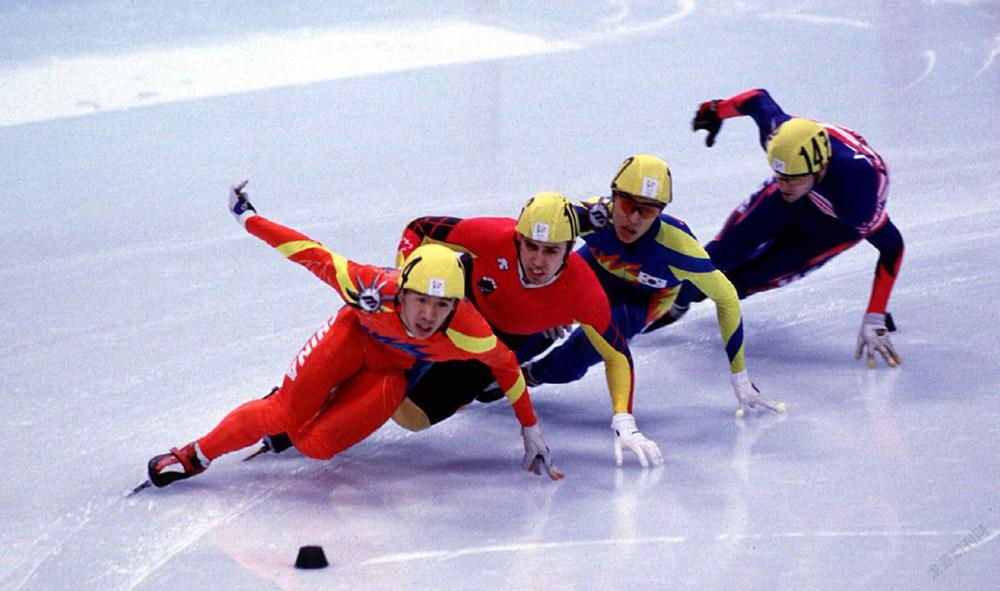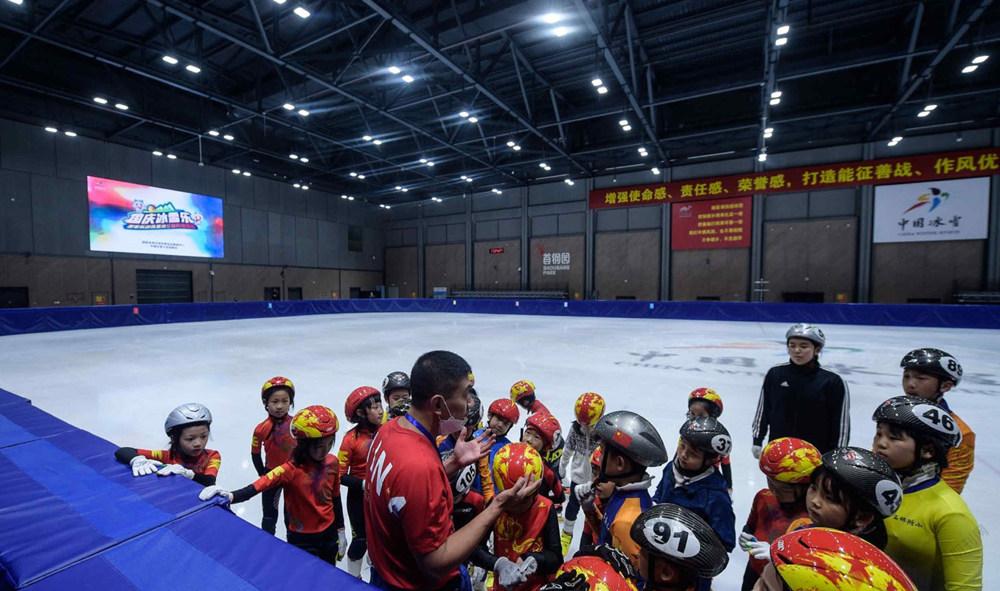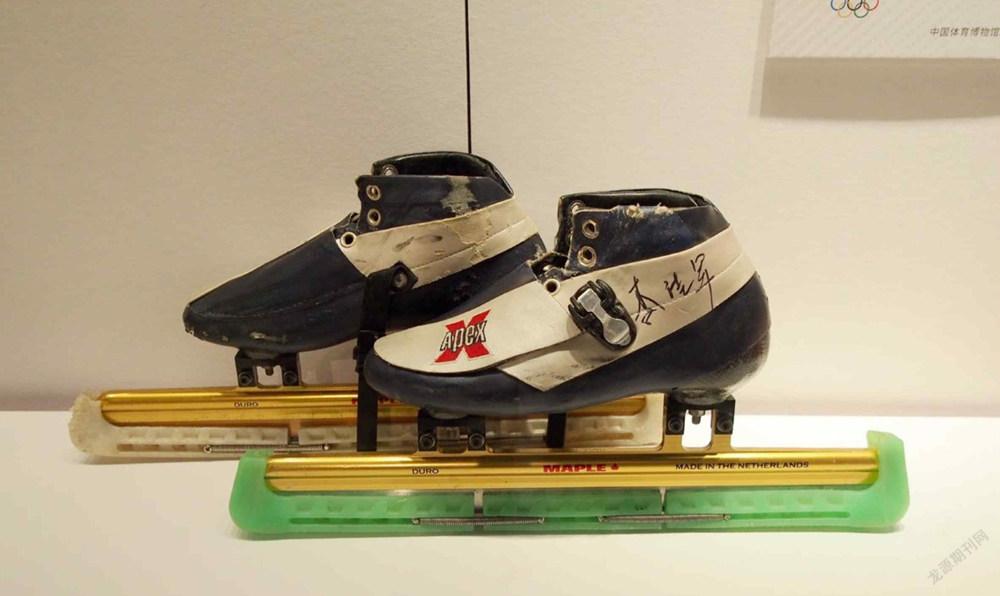40 YEARS OF DEDICATION
2022-04-20ZhangYan




Li Jiajun, China’s first male athlete to win a Winter Olympic medal, has devoted his life to winter sports
By Zhang YanLiJiajun was the only Chinese skater in the finals of the men’s 1000m short track speed skating at the 1998 Winter Olympic Games in Nagano, Japan. The rest of the field were skaters from Canada, the United States, and the Republic of Korea (ROK). In the medal race, Li placed second, just 0.053 seconds off the leader. Li’s outstanding performance made him China’s first male athlete to win a Winter Olympic medal.
“Advanced Korean sprinting techniques are still widely used today, and the South Korean short track speed skating team keeps winning at international events,” said Li about his secondplace finish with such a thin margin. “The ROK’s success in speed skating is down to their sophisticated athlete selection and training systems, which are worth learning about.”
From World Champion to
Promotional AmbassadorAfter first trying winter sports at the age of six, Li Jiajun started participating officially at age 16 as a training partner for skaters on the Chinese national team. Such experience enabled him to quickly grow into an all-round skater and began winning titles. “Skating as a training partner from 1991 to 1995 helped me get great training at high intensity, which laid a solid foundation for my career as a professional athlete,” Li said.
Li won the first world championship for the Chinese team in the men’s 1000m short track speed skating at the 1996 World Short Track Speed Skating Championships in the Hague, the Netherlands. Two years later, he earned the first of his five Olympic medals. Throughout his sporting career, Li won atotal of 27 world championships including two overall titles (1999, 2001) in the World ST Championships.
After winning China’s only medal in men’s short track speed skating at the Turin 2006 Winter Olympics in Italy, four-time Olympian Li Jiajun announced his retirement at the age of 31. His excellent performance continued to inspire the next generation of skaters to finally secure China’s first Olympic gold medal in the event.
Li’s dedication to wintersports continued after his retirement. He coached abroad for four years before serving as the coach of the Chinese national short track speed skating youth team. Many young skaters trained by Li gained valuable field experience and achieved impressive results in international events, among them Wu Dajing and Ren Ziwei, winners of Olympic gold medals.
Li left short track in 2012 in favor of different sports-related jobs such as event management, research, and winter sports team management. In recent years, the Olympic medalist has become committed to winter sports promotion. “Coaching and sports management have helped me gain a deeper and richer understanding of ice and snow sports,” Li said. “After serving in many different roles, I realized that promoting winter sports in general could reach the wider public, which is challenging but more fulfilling.”
Development of Winter Sports
Back in the 1980s, winter sports had little popularity in China, and few training facilities were available for practitioners. “In 1981, China had only two indoor ice rinks: one in Changchun and the other in Harbin,” revealed Li Jiajun.
For sports school students, training outdoors in freezing temperatures was a daily routine. “I was frozen in tears every day,” Li recalled. “The rink was shared by students practicing ice hockey, figure skating, and short track speed skating, so younger skaters like me with little competition experience would find the most joy skating on the rink at two or three o’clock in the morning.”
“Profound changes have taken place since then,” beamed Li. “By the beginning of 2021, 654 standard ice rinks and 803 indoor and outdoor ski resorts had been built across the country.” In its winning bid to host the 2022 Olympic and Paralympic Winter Games in 2015, China announced the ambitious goal of engaging 300 million people in sports on snow and ice. Li, already a dedicated promoter of winter sports, has since maintained a busy schedule. “We carried out a series of promotional programs such as the ‘integration of sports and education’ and ‘winter sports on campus’, and our efforts paid off as more school students became familiar with winter sports and a wider public got hands-on experience on snow and ice,” he said.
A survey commissioned by the General Administration of Sport of China and conducted by China’s National Bureau of Statistics showed that the visionof providing 300 million people in the country access to winter sports has been translated into tangible results. According to the report, as of October 2021, 346 million Chinese people had participated in winter sports activities since Beijing won the bid to host the 2022 Winter Olympics, accounting for 24.56 percent of China’s total population. Warmer regions in east and south China have also seen growing winter sports participation.
However, Li found some teenagers showing up to winter track events without proper outfits or equipment. He remembered a group of children from southern China incorrectly dressed in suits for a skiing event. “We told them to borrow separate tops and trousers, but instead they just cut their expensive skiing suits in half and showed me with great delight and sincere hope to participate in the event,” Li sighed. “I was truly touched by their eagerness but also realized that building facilities is as important as education.”
From only two ice rinks nationwide to increasing popularity with the general public, Li has witnessed every major development milestone of ice and snow sports in China. But comprehensive development is not achieved overnight. Despite rapid growth of the winter sports population, education on related rules needs to be improved, admitted Li. “Success in engaging 300 million people across China in winter sports is just the beginning of a long journey to full development of winter sports in the country,” he added.
Carrying on the Olympic Spirit
In October 2021, as the first Chinese torchbearer for the Beijing 2022 Olympic flame, Li Jiajun flew to Greece to bring the flame back to China. This unforgettable experience gave him a deeper understanding of the Olympic spirit. “As an athlete, I focused on training, preparation, and competition, seeking better results,” he explained. “Participation in the torch relay helped me get a stronger grasp of the core of the Olympic spirit.”
“I felt a sense of mission,” Li said when recalling the moment he received the flame. “The Olympic spirit is represented, inherited, and carried forward by everyone.” When asked how athletes cope with various challenges, he suggested that the necessary power to overcome difficulties is not found specifically in athletes but from human determination to make dreams come true.
“Not everyone is born with a gift for sports or the potential to become an athlete, but love for sports and relentless pursuit of goals help athletes find the courage to rise to challenges and become more determined,” he said. “It is true in the realm of sports but also in a wide range of other things.”
In July 2021, the International Olympic Committee amended its “Faster, Higher, Stronger” motto to include the word “Together.” “That change lifted the Olympic spirit to a higher level and highlighted the need for solidarity during difficult times like COVID-19,” Li emphasized. “Humanity will become stronger when all members of the Olympic family stand together.”
Looking back on his professional sports career, the winner of five Olympic medals has no regrets even though he never reached the top of the podium. His hopes are with the younger generation. “When one of my proteges wins a gold medal, my dream will come true,” Li smiled.
杂志排行
中国东盟报道的其它文章
- Mainland Medical Experts Continue Inspection of Hong Kong’s Anti-COVID Work
- Lao Leader Speaks Highly of China-Laos Railway
- Chinese Foreign Minister Holds Discussion with Singaporean Counterpart
- Chinese-aided National Road Inaugurated in NE Cambodia
- Thai Health Authorities Approve Sinovac, Sinopharm Vaccines for Use in Children
- VOICES
